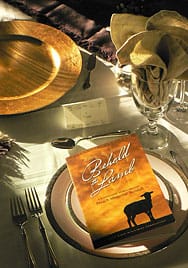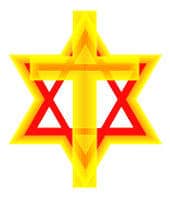The Tainting of Torah, Part 1
Q: Kevin, I’ve been so drawn to the Messianic way for a few years, but haven’t found a group of Messianic believers who get along. On Facebook there are 3 or 4 different groups who don’t agree with each other. Who can I trust to teach me when they all disagree on different things? Some [are] very legalistic to the point of saying believers who aren’t Messianic are going to hell… others I’m not quite sure what they’re trying to say. If I believe what some are saying, [my husband] is going to hell because he wants to give gifts on Christmas, and because his job requires working Saturday. Shalom.
A: First, let me say that I empathize with you—you are not alone in recognizing the divergent and often antagonistic views in Messianic (or pseudo-Messianic) circles. I think you have already uncovered your answer with regard to whom you can trust to teach you—or rather, whom you cannot. Paul acknowledged in 1Timothy 1:6-7 that even in his day, “certain [men], having swerved, turned aside to fruitless discussion, wanting to be teachers of Torah, not understanding either the things they say, nor concerning what they [confidently] assert.” If you’re confused about what they’re trying to say, it may be with good reason—their discussion is most likely “fruitless.” And without a doubt, the Legalist, and the one who condemns “non-Messianics” to hell should not only be completely ignored, but sternly rebuked. As for your husband, I think you already know to discard the words of those “teachers” regarding his fate. Celebrating Christmas—even working on Shabbat—is not going to send him to hell… not even close! Read more


 Shalom Kevin. I have been raised as a Gentile Christian my whole life, but within the last year or so, I have been experiencing an ever-increasing draw towards the Messianic Jewish community. The Gentile Churches make me want to vomit and mourn; as they are straying farther and farther from Yeshua. My whole family is beginning to look at me strangely as my heart wants to forsake this thing called “Christianity,” and I long to embrace and understand the culture and ways of God from the Hebrew- and Jewish-Roots. I am very attracted to the Messianic Community, though I have not yet visited a congregation. I am a Christian who is crying out for help, and I want to disconnect from my paganistic Christian upbringing and come until full maturity in Moshiac by embracing our Jewish roots. Any guidance, info, or words of wisdom would be appreciated.
Shalom Kevin. I have been raised as a Gentile Christian my whole life, but within the last year or so, I have been experiencing an ever-increasing draw towards the Messianic Jewish community. The Gentile Churches make me want to vomit and mourn; as they are straying farther and farther from Yeshua. My whole family is beginning to look at me strangely as my heart wants to forsake this thing called “Christianity,” and I long to embrace and understand the culture and ways of God from the Hebrew- and Jewish-Roots. I am very attracted to the Messianic Community, though I have not yet visited a congregation. I am a Christian who is crying out for help, and I want to disconnect from my paganistic Christian upbringing and come until full maturity in Moshiac by embracing our Jewish roots. Any guidance, info, or words of wisdom would be appreciated. 


